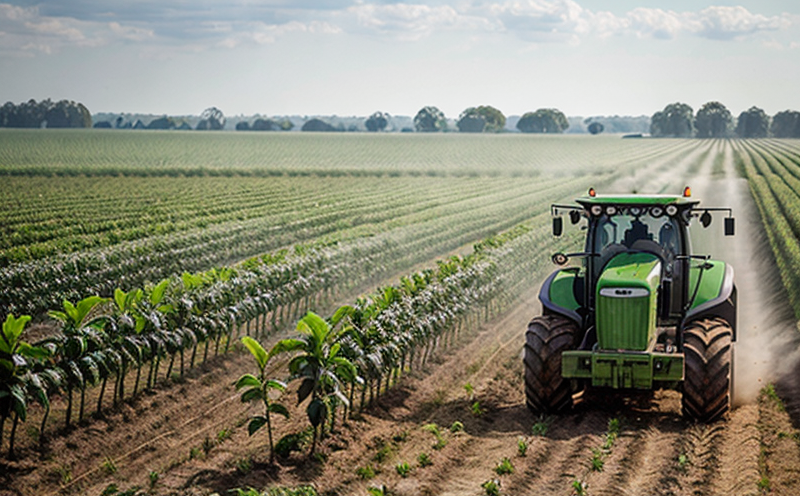CSA Z223 Agricultural Fuel Testing for Chemical Residues
The CSA Z223 standard is a critical component in ensuring the safety and quality of agricultural fuels. This testing protocol specifically targets the analysis of chemical residues, which can have profound implications on both human health and environmental sustainability. Compliance with this standard ensures that fuel products meet stringent regulatory requirements set forth by governing bodies.
Agricultural fuels are used extensively across various sectors including agriculture, forestry, and horticulture where machinery and equipment rely heavily on these fuels for operation. The presence of chemical residues can lead to degradation of equipment, inefficiency in performance, and potential contamination of the environment if not properly managed. By adhering to CSA Z223 standards during testing, laboratories play a crucial role in safeguarding public health and protecting natural resources.
The process involves meticulous sample preparation followed by thorough analysis using advanced analytical techniques such as gas chromatography-mass spectrometry (GC-MS) or liquid chromatography-tandem mass spectrometry (LC-MS/MS). These sophisticated methods allow for precise quantification of even trace levels of contaminants, providing reliable data that supports informed decision-making at all stages from production to end-user application.
Compliance with CSA Z223 is essential not only for meeting regulatory obligations but also for maintaining a competitive edge in the market. Consumers increasingly demand transparency regarding product safety and environmental impact, making adherence to such standards more important than ever before.
To ensure accurate results, it is imperative that laboratories performing this type of analysis follow internationally recognized guidelines like those provided by ISO 17025 for quality management systems in testing and calibration laboratories. This ensures consistency across different facilities worldwide while maintaining high ethical standards throughout the entire process.
Why Choose This Test?
Compliance with international standards: Adhering to CSA Z223 ensures that your agricultural fuels comply with internationally recognized guidelines, thereby reducing the risk of legal issues and potential fines.
Promotes safe usage: By detecting harmful chemical residues early in the supply chain, this test helps prevent incidents that could endanger human health or cause environmental damage.
Enhances product reputation: Demonstrating compliance with rigorous testing protocols can significantly boost customer trust and loyalty, enhancing your brand’s image as a leader in sustainability practices.
In addition to these benefits, choosing CSA Z223 agricultural fuel testing offers peace of mind knowing that every batch undergoes stringent scrutiny before reaching its intended destination. It fosters confidence among stakeholders about the integrity of each product and contributes positively towards achieving global goals related to sustainable development.
Customer Impact and Satisfaction
Increase customer trust: By providing reliable test results, you demonstrate commitment to maintaining the highest standards of quality control which translates directly into increased customer satisfaction.
Reduce risks associated with non-compliance: Ensuring full compliance reduces exposure to potential lawsuits or recalls resulting from contaminated products.
Moreover, adopting CSA Z223 testing procedures helps businesses stay ahead of evolving regulatory landscapes. As regulations continue to tighten around the world regarding agricultural fuel safety and environmental protection, staying compliant becomes increasingly important for long-term success.
Environmental and Sustainability Contributions
The importance of sustainable practices cannot be overstated in today’s global economy. Agricultural fuel testing under CSA Z223 not only ensures product safety but also plays a vital role in promoting environmental stewardship.
By identifying and eliminating harmful chemical residues from agricultural fuels, this service contributes significantly to reducing pollution levels both at point-of-use and throughout the supply chain. It helps minimize the ecological footprint by preventing contamination of soil, water bodies, and air caused by improper fuel usage.
Furthermore, implementing robust testing protocols aligns with broader initiatives aimed at fostering sustainable development goals (SDGs). Through meticulous analysis and stringent quality assurance measures, laboratories contribute valuable insights that inform better practices within industries reliant on agricultural fuels. This proactive approach supports efforts towards creating a healthier planet for future generations.





